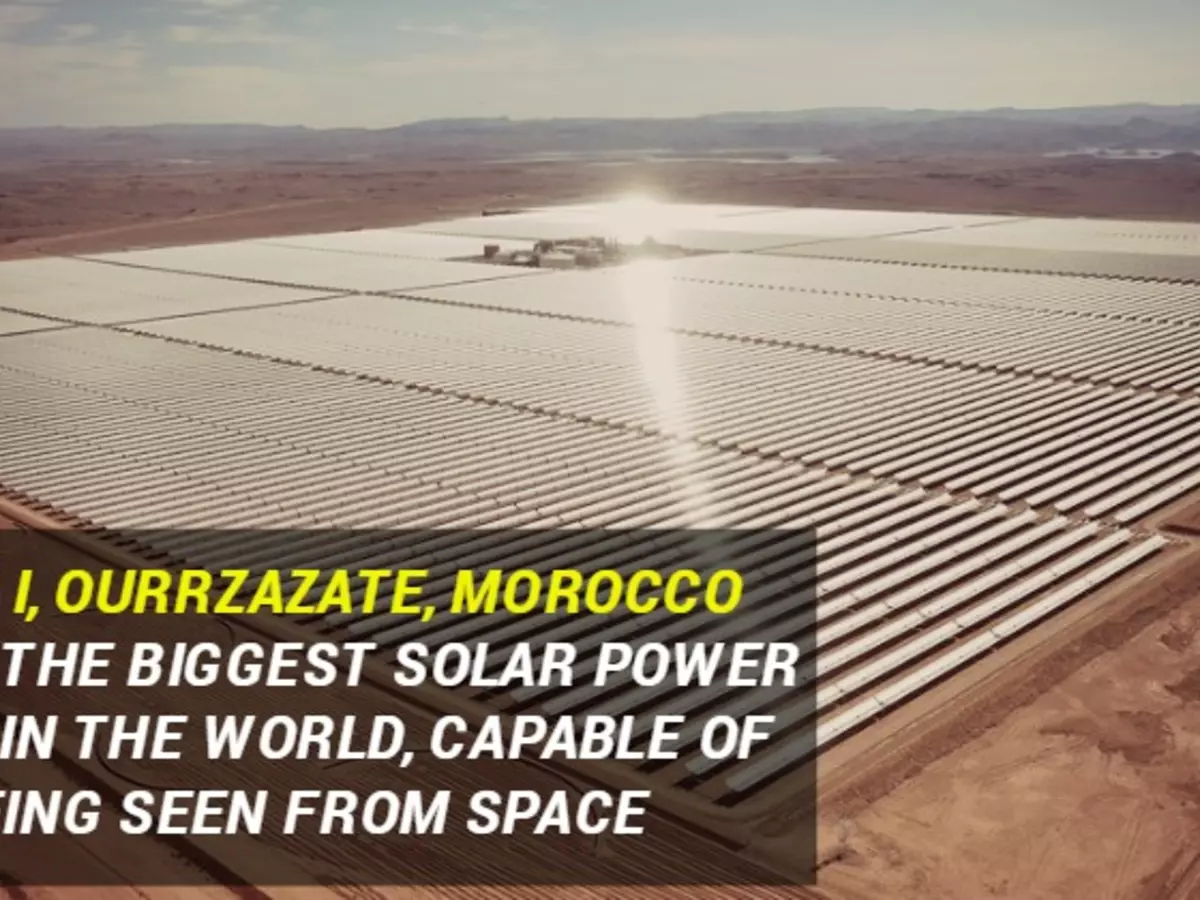Morocco Set To Make Way For The World's Largest Solar Power Plant
The North African nation of Morocco receives over 3000 hours of sunlight annually. Despite this 97% of the countrys energy consumption is dependent on imported non-renewable sources. The small town of Ourrzazate is home to Noor I which is one of the largest solar power grids in the world. It produces 160MWof power and can provide solar power to 650000 people from dawn until three hours past sunset.

The North African nation of Morocco receives over 3000 hours of sunlight annually which makes it the perfect site for a solar power generating plant. Despite this fact, 97% of the country's energy consumption is dependent on imported non-renewable sources.
As of now the small town of Ourrzazate is home to Noor I which is one of the largest solar power grids in the world and can be seen from space. It produces 160 MW of power and can provide solar power to 650,000 local people from dawn until three hours past sunset, according to The Guardian.

Google Maps
How the technology works
Currently, the plants structure consists of 500,000 curved mirrors, each standing at about 40 feet tall. These mirrors concentrate the sun's light onto a pipeline filled with fluid, heating it up to 393 degrees Celsius. This fluid is then used to heat up a nearby source of water, which turns to steam and spins turbines to create energy.

constructionreviewonline.com
Given Morocco's geographic location at the edge of the Sahara desert, there will be plenty of solar energy to harness. But the plant can also keep generating power at night. According to NASA, the heat from the fluid can be stored in a tank of molten salts.
Future Plans
Noor I is only the first phase of a planned project to bring renewable energy to the country. Expansions into Noor II and Noor III will add more mirrors to the existing plant.

npr.org
The project is estimated to be complete around 2018 and the entire grid will cover 6,000 acres of land. It will be capable of generating up to 580 MW of power and could be compared to a small nuclear reactor.
Those funding the project are hopeful that the completed grids will bring power for 20 hours a day to local people thereby reducing Morocco's dependence on other energy sources. Currently the target is set at 42% for renewable sources like solar, hydropower and wind energy.

worldbank.org
The project reflects a positive future for the country that hopes to reduce carbon emissions.
